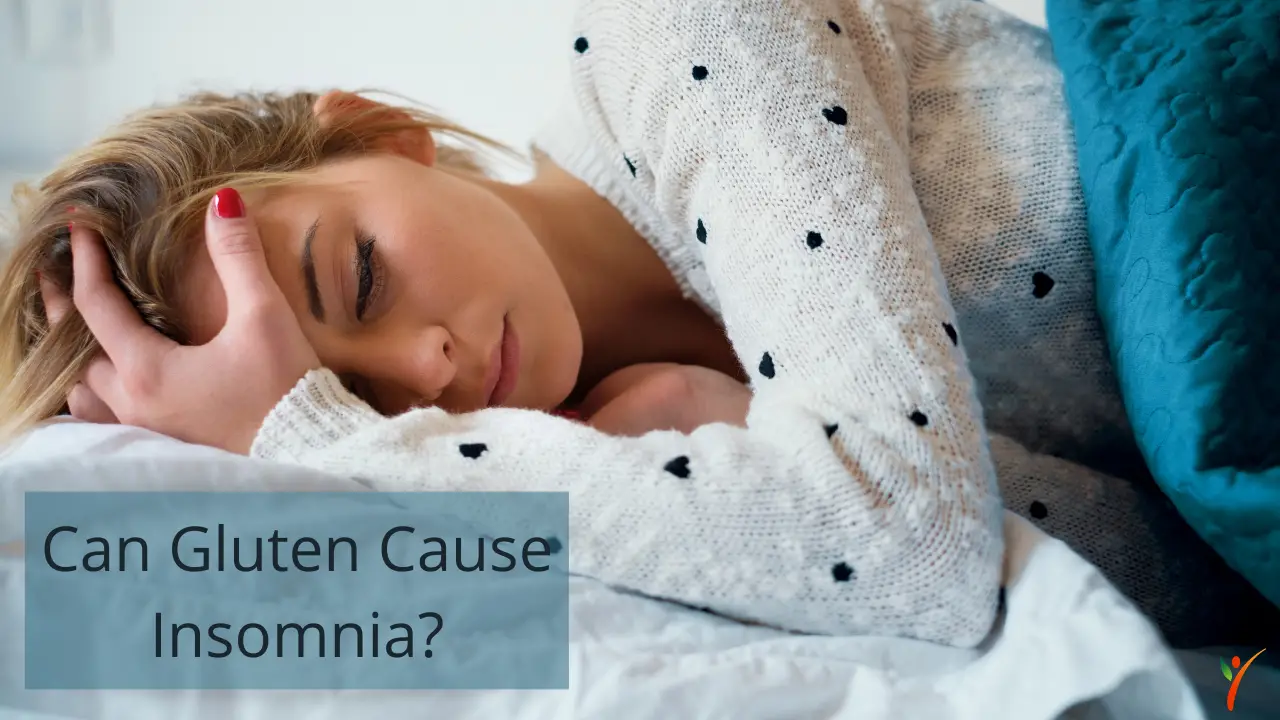Those long hours of tossing and turning in bed can be quite tedious. If your sleep cycle is disturbed, the rest of your day goes by in a haze too. Have you wondered about what exactly causes this disruption in your sleep?
Well, the cons of consuming gluten are many and quite infamous. Then can gluten disrupt sleep? Or are gluten and insomnia related? If you have frequently been asking these questions, it is time to find the answers and solutions.
To understand the reasons behind these gluten and sleep disruption assertions, let us first understand the relation between gluten and insomnia.
Gluten And Insomnia
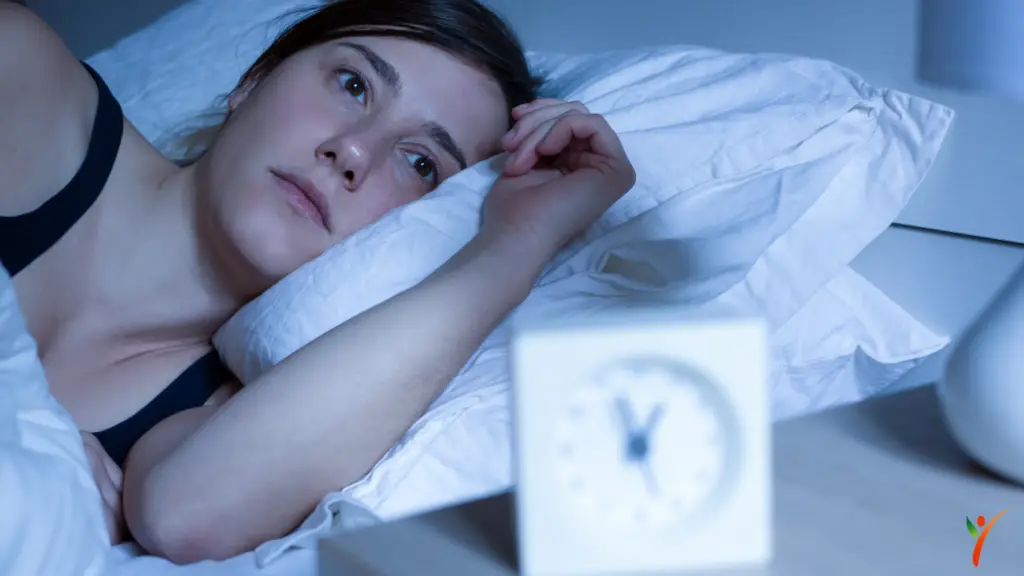
Although many people do not recognize the relation between them consuming gluten and insomnia, it indeed exists.
Awareness about celiac disease and gluten sensitivity without celiac has increased over the past few years. So, scientists also have done more research. This research about the food habits and sleep cycles of various people revealed some results.
They showed that there indeed is a possibility between them consuming gluten and sleep being disturbed.
Individuals whose bodies resist gluten entirely often notice how quickly they feel completely drained out and fatigued. Undergoing fatigue is one of the most evident symptoms of either celiac disease or gluten sensitivity. But despite this extreme fatigue, they are still not able to get a good sleep.
They either have too much trouble falling asleep or do not continue to stay asleep without having their sleep disturbed.
How exactly is gluten and sleep disorder related?

There is a lot of new information on how consuming gluten brings up an array of health issues.
But going on a gluten-free diet without having celiac disease or gluten sensitivity can be equally harmful. Your body will miss out on tons of essential nutrients when you eliminate the gluten. So, scientists have concluded that the reason behind gluten-free and insomnia may be the lack of proper nutrients in the body.
Or mal-absorption of nutrients by the gut can also cause it. But these reasons proved to be invalid because people with celiac disease or gluten sensitivity, which had been on a gluten-free diet for a long time, continued to face trouble sleeping.
But there was one thing that came out of these researches.
- People with gluten sensitivity or celiac disease had more aggravated symptoms of sleep deprivation. They either had abnormal sleep patterns, extreme disturbance in sleep, and used sleep medicines.
- Well, then, how does gluten affect your sleep directly? The answer lies in what the author of ‘The Gluten Syndrome,' Dr. Rodney Ford, concludes.
- This New Zealand-based pediatrician suggests that it affects your brain when you consume gluten regularly in your meals. This effect is directly in the brain and causes some neurological issues.
- In turn, the tissues which calm the brain and cause you to sleep also get adversely affected. As much as this might be true in some senses, there has been no proof to back up this theory.
- After all, we can see inflammation of the gut lining in all celiac patients and those with gluten sensitivity when they consume gluten. So, the majority of the issue lies with the stomach.
Here are a few tips to improve your sleep cycle
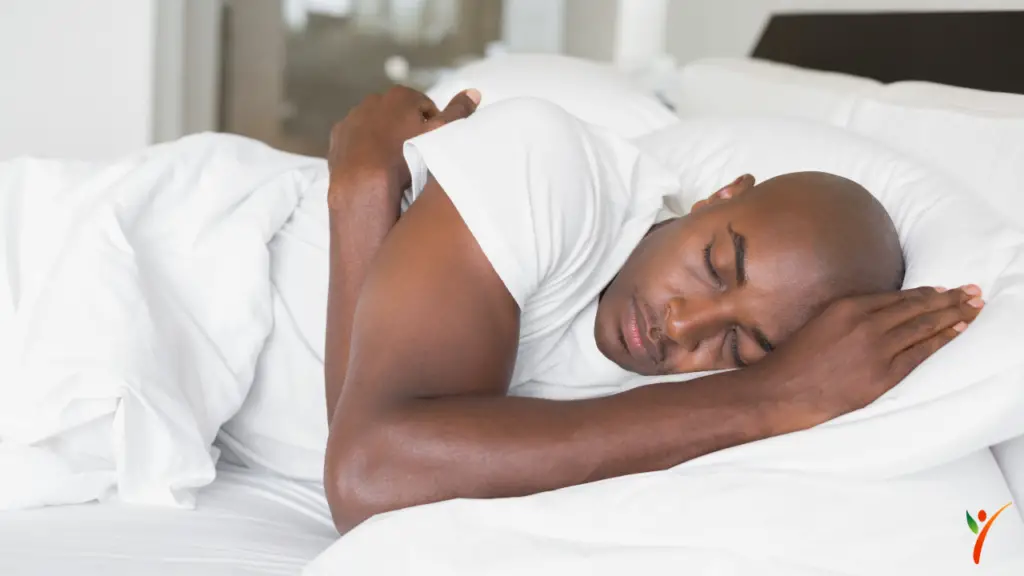
Eliminate gluten The first and foremost step you need to take to improve your sleep cycle is to eliminate gluten from your diet.
- Whether through food or cosmetics, or any other medium, you should ensure that gluten does not enter your body.
- Most people think that they are safe when they buy food labeled as gluten-free.
- But since the limits vary from country to country, small amounts of gluten in food are labeled gluten-free.
- It is known that if if you are extremely sensitive to gluten, your body will likely react adversely even to the smallest amounts of gluten.
- It would be best if you especially got rid of wheat gluten, and your insomnia will get better.
- Therefore, ensure that you thoroughly check the estimated gluten levels even in the gluten-free labeled foods and other products.
Create An Ideal Sleeping Environment
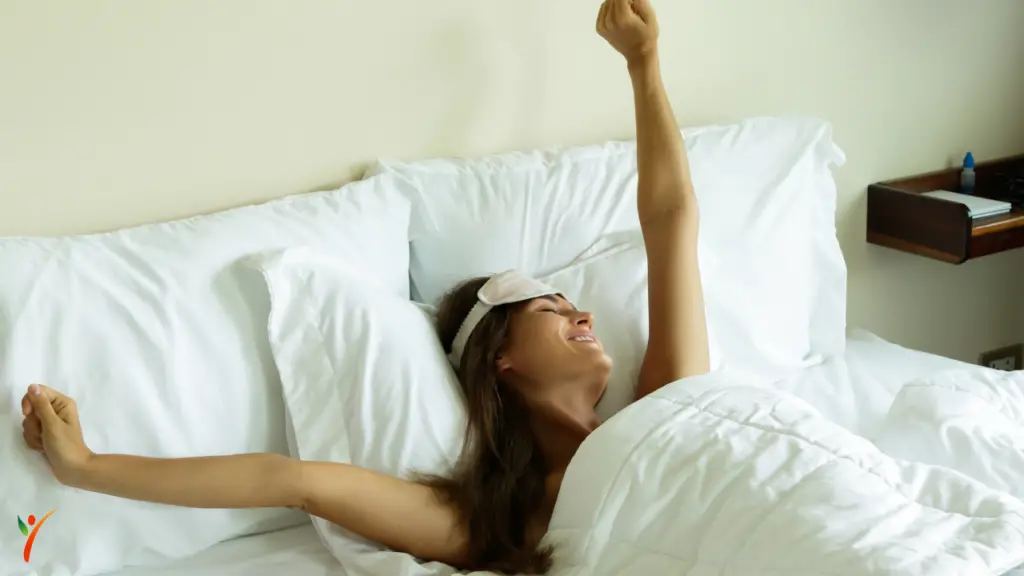
Even after you go gluten-free, your sleep cycle may take a while to regulate. To make things easier, it is best if you have a good sleeping environment for yourself.
Ensure that you follow the basics of how to keep your bedroom sleep-friendly.
For instance, you must stay away from all devices at least an hour before sleep since the light from the devices causes sleep disruption.
Also, ensure you do not have a large dinner but keep it light to fall asleep comfortably.
Keep all noise inducing sources away from your bedroom and maintain a cool room temperature to help you fall asleep.
Once you follow these tips, you are sure to fall asleep faster and better.
Look For Assistance
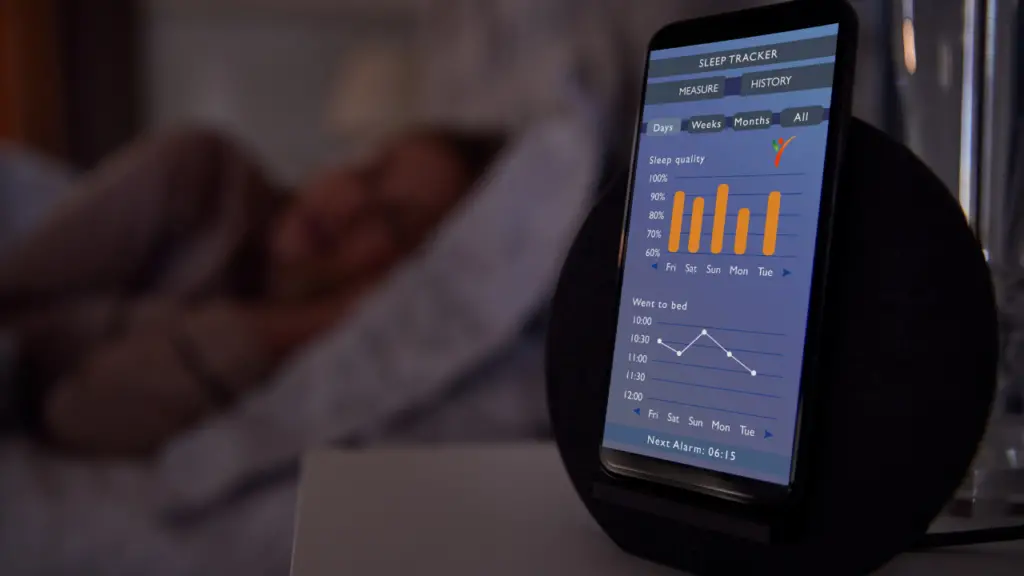
If you have been following all the tips without fail and still do not see results, you should probably seek some assistance.
You can either consult your doctor or even a sleep specialist to help you understand what more he can do.
If you want to try methods on your own and not consult professionals, you can even try using some sleeping apps to get a good night's rest.
Choose what works best as long as it shows results.
Irrespective of how the gluten is causing the sleep disturbance, you need to get adequate sleep to lead a healthy life.
Here are some tips for you to get a good sleep once you embrace the gluten-free diet.
When you have chosen to go gluten-free after consulting your doctor, you need to follow some guidelines.
Only going gluten-free and following a restricted diet for insomnia, it will not help your sleep schedule. You need to follow some specific tips to ensure getting a night of good sleep and staying asleep.
Balance Out Nutrients

The majority cause many health issues, and sleep is related to the lack of essential nutrients in our body. Therefore, when your body does not get enough nutrients, it is sure to function inadequately.
Eliminating gluten from your diet and choosing to go gluten-free, you may also forego many essential nutrients. The lack of these nutrients can cause you to not get a night of sound sleep even after eating a gluten-free diet.
Therefore, you must supplement your body with external nutrients like Vitamin B, Folic Acid, and the likes. You can see these two nutrients, majorly in grains and bread, which you do not consume on a gluten-free diet.
That is why when you externally supplement your body with Vitamin B and Folic Acid—assuring you to get better sleep.
Do Not Neglect Physical Discomfort
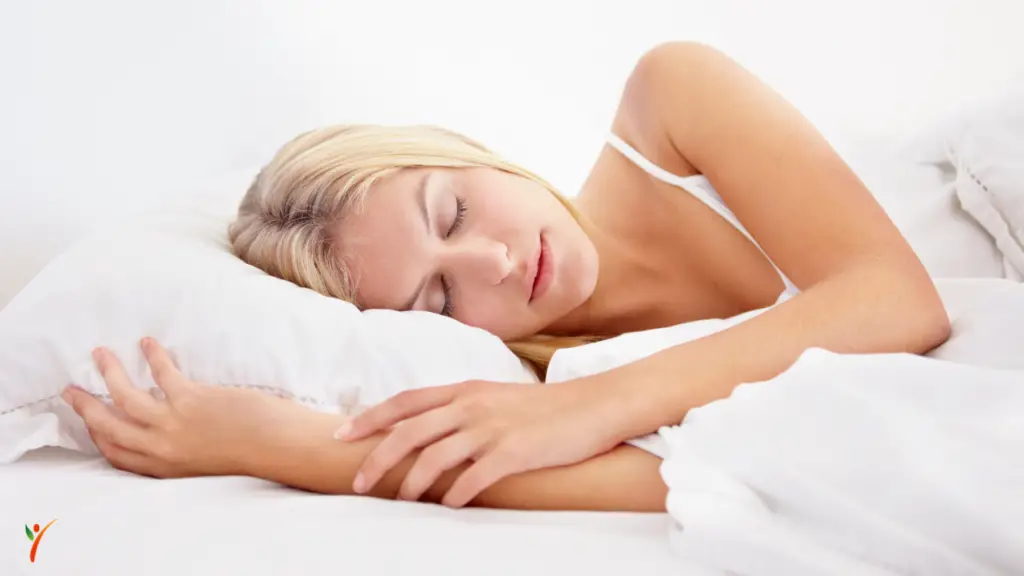
You may be so eager to get your sleep cycle on track that you may end up missing some of the major factors that do not let it happen.
For instance, your body needs a comfortable and peaceful surrounding to fall asleep. If your mattress is not very comfortable, or your bedroom is not the ideal surrounding to sleep in, your sleep cycle is sure to be disrupted.
To ensure an undisturbed sleep, you first need to check whether your body feels comfortable and can relax well on your mattress. Create your bedroom space to be ideal for sleeping, and you will start seeing the results.
Keep A Tab On Your Stress Levels

It is easy to get stressed with the happenings of our daily lives. As quickly as people advise us to shed the stress, it is not that easy.
But if you want to sleep peacefully without hindrances, you surely need to keep that stress at bay. You cannot stress your body and mind and expect to fall asleep fast or have a good night's sleep.
If you keep your stress levels in check, your sleep pattern will automatically start improving.
Melatonin is the component that is needed to fall asleep well. But when you are anxious or stressed, your melatonin levels drastically reduce, making it even more challenging to sleep well.
That is why, along with going on a gluten-free diet, it is also essential that you manage other factors like stress and anxiety.
Gluten-free Snacks For A Healthier Bed Time

If you love to munch on something before you sleep, you should eat gluten-free snacks.
Eating gluten-free is not enough for an improved sleep pattern. You surely need to follow a lot of other tips and manage external factors. But to help you improve your sleep quality and quantity, here are some gluten-free snacks that you can have before you sleep.
Bananas
A mineral that will help you relieve your stress and relax comfortably is Magnesium. It also enables you to fall asleep well.
This Magnesium is abundantly available in Bananas. Try eating bananas and see how well it helps you to fall asleep peacefully. If you are not a big fan of bananas and find it hard to eat them, use some almond butter.
Combining some almond butter with banana is an excellent combination of deliciousness and good health. Bananas come with potassium, so it provides double benefits.
Sweet Potato
Sweet potatoes have complex carbs and potassium. These two components help your muscles to relax well and thus fall asleep better.
You do not have to worry about putting on weight since sweet potatoes are a much healthier option than regular potatoes.
But ensure that you do not waste the sweet potatoes' skin peels since most nutrients and benefits are present in it.
Walnuts
Melatonin is the hormone that helps your body recognize when it is tired and needs to sleep. And walnuts produce this melatonin in abundance.
When you consume walnuts, your body gets a signal, whether it needs to sleep or stay awake. Making your internal body clock regularized and your sleep schedule on track.
Eating walnuts by themselves or put them in some granola or yogurt.
Oatmeal
Eating oatmeal is one of the healthiest snack choices. But ensure that the oats you buy are entirely free of gluten.
Most oats do contain gluten or are gluten contaminated. That is why it is always essential that you check the labels thoroughly. To make the oatmeal better, you can add some fresh chopped fruits or almonds and other nuts.
And you have a delicious yet healthy bedtime snack ready in no time.
Wrapping Up

It may become frustrating when you do not get a good night of sleep and start with your daily routine without proper rest. If you follow the above tips and consult your doctor to regulate your sleep cycle, you should find some relief.
I know that going on a gluten-free diet can be overwhelming and challenging to follow at times. But if you do it well, it will reduce the majority of your health issues.
In addition to all the eating habits, make sure you also pay attention to all the external factors affecting your sleep. Create an ideal lifestyle and surroundings to keep yourself comfortable and thriving. With the right measures and changes in your routine and surroundings, you will surely see a drastic change in your sleep cycle.
Remember not to undermine the importance of a good night's sleep since that determines your work output for the next day.

